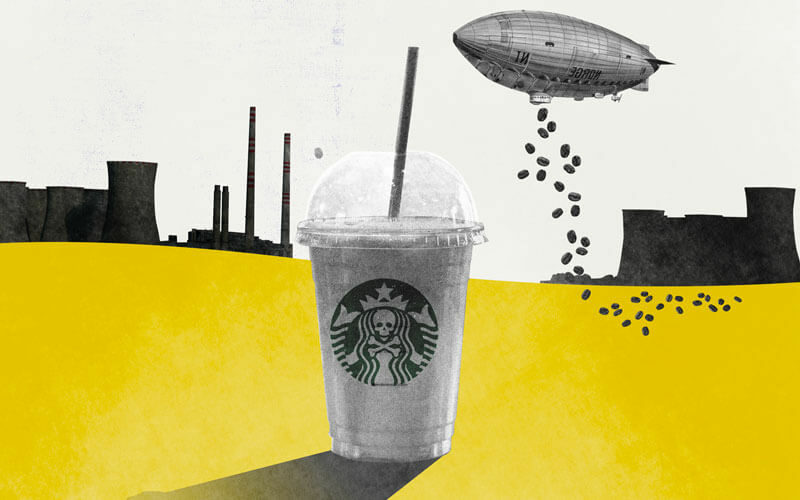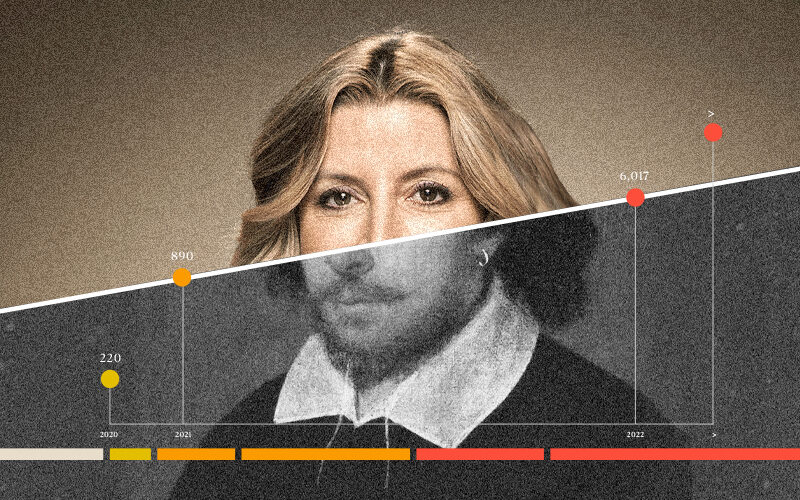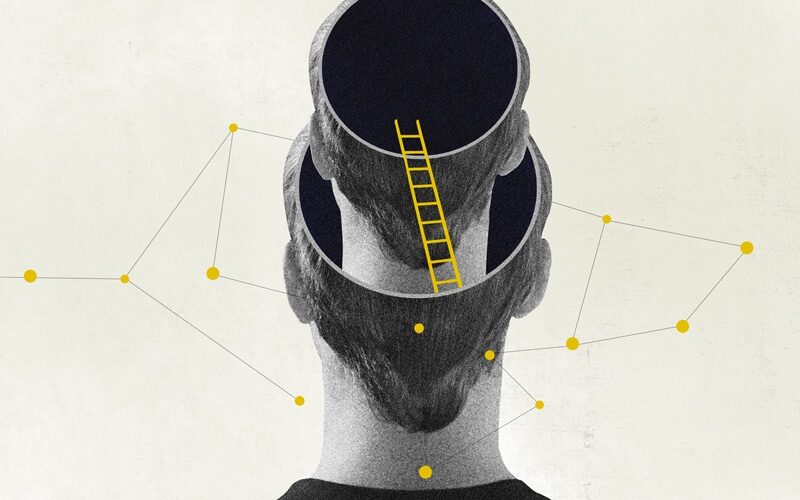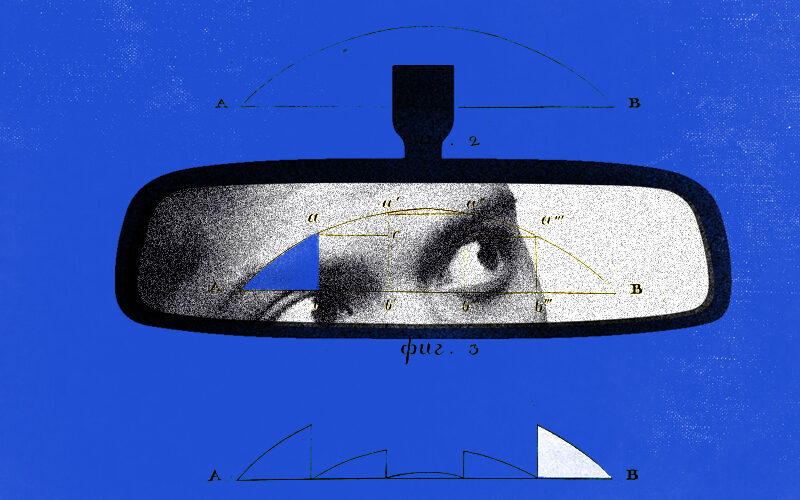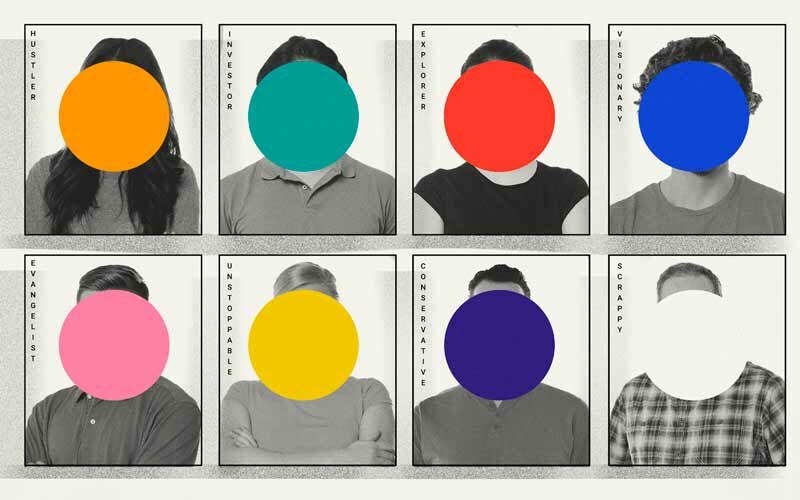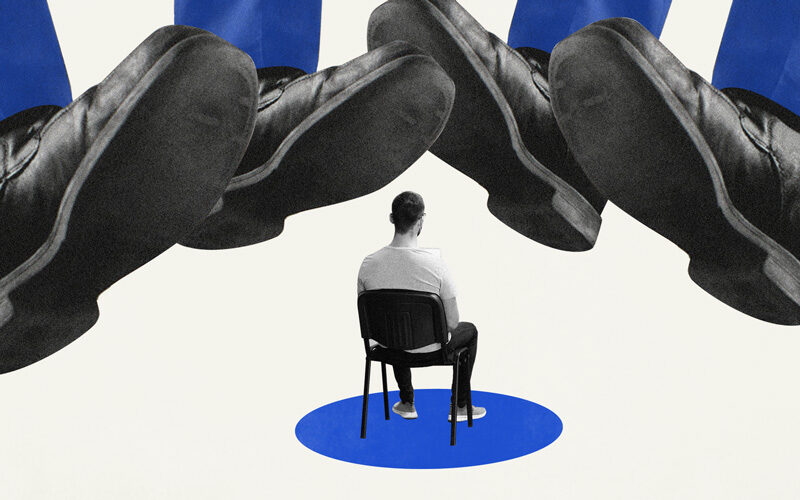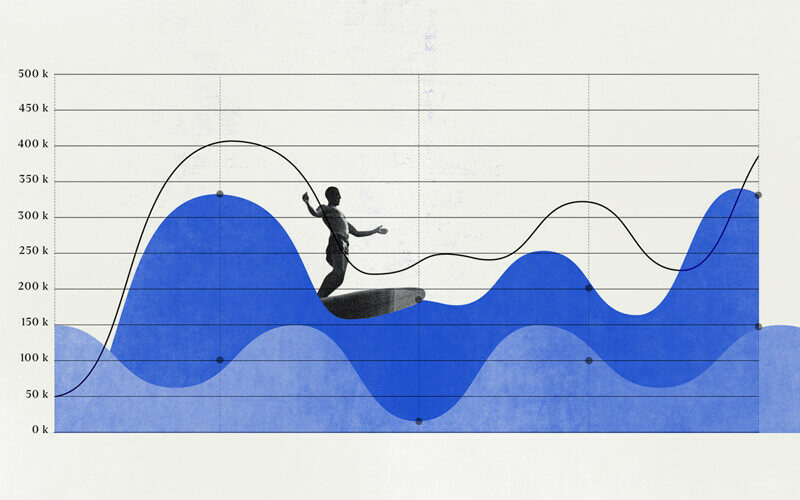Hustle hysteria, struggle porn, grind glory. Take your pick of euphemisms – the worship of startup workaholics is breeding a dangerous association between self worth and borderline self harm in the name of productivity.
Hustle hysteria is easy to spot in the wilds of social media. Look for shots of desks (AKA #battlestations) posted at midnight with a timestamp, terrifyingly oversized coffees, and “motivational” slogans slathered across stories.
It’s also intimidatingly present in workspaces and countless corporate mission statements.
Women have been given their own special (read: condescending) category, championed by such notorious offenders as Molly Mae and the Kardashian sisters. Girlbosses, boss babes, and “that girl”s: making women working normal hours feel bad about themselves since 2010.
Living through late-stage capitalism is weird, and the trend of hard-work worship makes it even weirder.
But it’s nothing new. It’s Henry Ford-esque. Perhaps even Dickensian. It’s a movement entrenched in old-fashioned notions of elbow grease and meritocracy. It’s the anyone-can-make-it American Dream, and it’s been cunningly repackaged for each new generation since capitalism began.
The only difference now? There’s no excuse for not taking part.
Feel like you don’t work enough in the office? Well now you can do it from home! The online marketplace is open 24 hours a day. Web stores are free to build, so you don’t even need money – just your free time, which you’d probably waste sleeping or spending time with friends anyway.
For a while it seemed like people would listen to the foghorn-like wakeup call of the pandemic. But struggle sentiment pervades. 58% of Americans and 48% of Aussies are using or planning to use their out-of-work time to work some more.
So why aren’t you?
Hustle vs. health
Maybe it’s because you value your wellbeing.
Influenced by the horrible example set by so many old school CEOs and their 4 hours of sleep a night, younger generations are pushing themselves to the limits. In 2019, 52% of founder-managers under 40 experienced some form of mental health condition. And that was before COVID hit.
The National Institute of Mental Health has found the percentage to be around 72% across all ages of entrepreneurs.
When our drive and determination topples over into relentless labour, our personal wellbeing is the first thing to go.
When we’re young and ambitious, we tend to see mental breakdowns and heart problems as something that happens to older people. But it’s the way we treat ourselves in our 20s, 30s, and 40s that turns the screw.
Despite this, coworking spaces are splashed with insidious messaging that applauds the struggle, and social media feeds are filled with likes and clapping emojis when a founder posts a 6am start time. But it’s bad news for grind glorifiers: you’re harming your business just as much as your brain.
The wicked need rest too
Lack of sleep impairs your ability to perform cognitive tasks, pay attention to detail, generate ideas, and make rational decisions.
The coffee and energy drink industries make billions out of the tired-but-trucking-on who can’t tell the difference between sleep deprivation and sleep restriction. Sleep deprivation might allow you a few weeks before you collapse. But sleep restriction is so common we accept it as the norm, unaware of its insidious effects, never seeing how much better we could be with the 7-9 hours a night the National Sleep Foundation recommends.
Like any form of corner cutting usually is, the whole thing is a false economy. Being up all night might give you bragging rights, but it’s your performance that will suffer.
Cheating biology
The other side of the coin is the power lifestylers who think they can counter stress and overworking with routine, nutrition, or spirituality.
PayPal and Palantir cofounder Peter Thiel plans to live to 120. He injects himself with Human Growth Hormone and young peoples’ blood (seriously – it’s called parabiosis) to help reverse the ageing effects of holding Meta shares and bankrupting online publications.
Jack Dorsey regenerates his life force by eating just one meal a day and attending meditation and tech-detox retreats (even the founder needs a Twitter break from time to time).
Representing the Hollywood cohort, Mark Wahlberg starts his day at 2:30am, stacking his calendar with prayer, parenting, exercise, work, and militarily-planned meals until it’s time to sleep at 7:30pm.
Wahlberg gets seven hours of sleep. His meal plan is high protein, vitamin packed, and sugar free. He uses cryo chambers to power-recover from his hectic schedule’s physical demands.
At least the guy’s eating.
But as a professor points out, “The human body does adapt to extreme regimes, but it also needs time to recover and repair…. I would suspect in 5 or 10 years’ time he may well not be living that type of extreme lifestyle. Either mentally he will have lost the willpower, or physically his body will have said enough is enough.”
Founders and CEOs are often extreme personalities. There’s actually some evidence they share certain traits with drug addicts, like risk-taking and novelty-seeking behaviour.
Like addicts, they often have a higher need than most to escape or even numb themselves to the pressures of leadership.
Larry Kudlow famously left Bear Stearns (and was fired as Economics Editor for the National Review) for reasons relating to cocaine and alcohol abuse. Everytable founder Sam Polk was a lifelong, self-described addict to both drugs and money. InQuicker founder Michael Brody-Waite actually credits his addiction for his success.
An addictive personality and a high stress situation is a dangerous combo. Because addiction has many tentacles. What might start as an obsession with money, winning, or even the seemingly innocuous things business success can bring like praise can develop into a taste for greater and greater reward.
These dangers are not exaggerated. Losing sight of what your body needs can be a gateway to serious personal problems. We can counter the threat by focusing on the other bottom line: taking care of ourselves.
We can’t outrun our biology. Anyone who suggests we can evolve to need less sleep doesn’t understand how long evolution takes.
Why do people still love LinkedIn?
LinkedIn has 810 million active users worldwide. In its early days, it was the business networking tool that just made sense. It still is a genuine and highly useful place to recruit, apply for jobs, and keep in touch with connections. But the culture has morphed into something arguably even uglier and more unpalatable than Facebook.
Growth hackers, marketing ninjas, and tech gurus assemble to grandstand about their professional achievements and personal virtues. Toxic positivity posts wish us “happy monday!”.
It’s a place for pushing political agendas thinly veiled as opinion pieces, and humblebrags thinly veiled as success stories. The self-titled CEOs announcing the sandwiches they bought for homeless people are old cliches. The unsolicited (and often questionable) career advice is tired, self-aggrandizing, and turns into raging, time-draining, toxic debates.
It’s amazing that 40% of its active users are logging in every day.
What are they getting out of it?
Conversations down the pub are decidedly anti-work. But privately, some of us are still so drawn to that professional recognition, so entrenched in the need for a workplace well done, we’re fulfilling that need in the corporate “safe space” that LinkedIn presents.
It wouldn’t be so bad if there was a counterbalance. More posts about being late or having off days or messing up in investor meetings. But that would violate the cult-like values of the vernacular. And, of course, we tend to have our bosses and coworkers on our feeds.
There is a growing band of mental health defenders that pop up on the most toxic pro-work posts. But you so rarely see it, it’s as if just being a human doesn’t exist in the LinkedIn-verse. And that’s damaging to our self-perception.
Humility is the new humblebrag
For startup founders trying to build personal brands and online presences, it’s worth remembering that people don’t want to know how well you’re doing. They want to know how they can do well. They want to know how their problems can be solved. They want to be inspired and educated. If you do it right, they might be open to being sold to.
Hard work is so championed in our culture that being chill is seen as incompatible with success. The insipid philosophy at the heart of hustle culture is that if you’re not struggling, you’re doing it wrong.
We need to band together to support rather than throw shade. Because although pressure to be productive always comes from the top down, we can find our egos getting caught up in the narrative, and become accomplices in perpetuating these harmful ideals.




